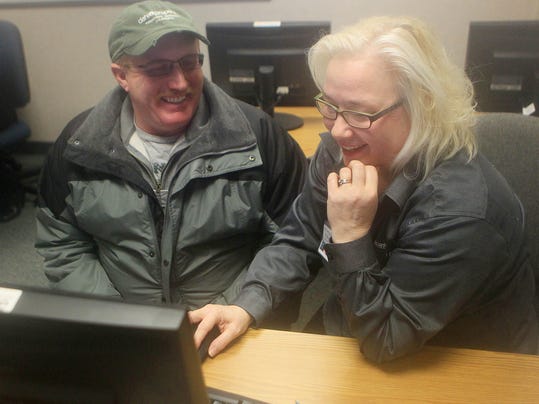
New usage-based insurance plans that require a small plug-in device that collects data on your personal driving habits and reports back to your insurer can help produce significant savings for some drivers on auto insurance. NY1's Tara Lynn Wagner filed the following report.
For the most part, your car insurance rate is based on data, with things like your gender, age, address and education level factored in. But if you're a good driver, why should you be penalized for the faults of your peers? Enter the growing trend of usage-based insurance plans, also referred to as Pay as You Drive.
"You know, it's taking off, but yet, still less than 1 percent of all drivers are enrolled in one of these programs, so it really hasn't hit the mass market yet," says Laura Adams, a senior insurance analyst with insurancequotes.com. "But for those that are enrolled, they're saving a lot of money, in some cases as much as 30 or 40 percent."
In many cases, the programs involve a small plug-in device that collects data on your personal driving habits and reports back to your insurer.
Vanessa Baylor is an agency principal with Allstate. Their recently launched DriveWise program monitors several things, including mileage.
"If it's low mileage that we're specifically looking for, it's between 25 and 40 miles per day," Baylor says.
In addition to how much you drive, carriers are also interested in when.
"If you've got a night shift, let's say, and you're driving between the hours of midnight and 5 a.m., that is not favorable to an insurance company," Adams says. "Many accidents happen in the wee hours of the morning."
Feel the need for speed? Anything over 80 miles per hour is a red flag. So is slamming on the brakes.
Factoring all of that in, the Drivewise program then issues you a rating. The better the grade, the deeper the discount.
"Most drivers average around a B rating," Baylor says.
If you know you're not the best driver, you might be reluctant to give this type of program a try. But here's the thing: there's no penalty. Your rate won't go up based on your bad habits. Good drivers get rewarded with serious savings. Everyone else, well, maybe greater awareness will make you a better driver."
That's proven to be the case with Baylor, who's enrolled in DriveWise herself and regularly reviews her own behavior online.
"Actually, I have stopped braking as much, so it has helped me improve with my driving experience," she says.
While many insurance companies now offer usage-based options, Pay as You Go programs are not available in every state.
For the most part, your car insurance rate is based on data, with things like your gender, age, address and education level factored in. But if you're a good driver, why should you be penalized for the faults of your peers? Enter the growing trend of usage-based insurance plans, also referred to as Pay as You Drive.
"You know, it's taking off, but yet, still less than 1 percent of all drivers are enrolled in one of these programs, so it really hasn't hit the mass market yet," says Laura Adams, a senior insurance analyst with insurancequotes.com. "But for those that are enrolled, they're saving a lot of money, in some cases as much as 30 or 40 percent."
In many cases, the programs involve a small plug-in device that collects data on your personal driving habits and reports back to your insurer.
Vanessa Baylor is an agency principal with Allstate. Their recently launched DriveWise program monitors several things, including mileage.
"If it's low mileage that we're specifically looking for, it's between 25 and 40 miles per day," Baylor says.
In addition to how much you drive, carriers are also interested in when.
"If you've got a night shift, let's say, and you're driving between the hours of midnight and 5 a.m., that is not favorable to an insurance company," Adams says. "Many accidents happen in the wee hours of the morning."
Feel the need for speed? Anything over 80 miles per hour is a red flag. So is slamming on the brakes.
Factoring all of that in, the Drivewise program then issues you a rating. The better the grade, the deeper the discount.
"Most drivers average around a B rating," Baylor says.
If you know you're not the best driver, you might be reluctant to give this type of program a try. But here's the thing: there's no penalty. Your rate won't go up based on your bad habits. Good drivers get rewarded with serious savings. Everyone else, well, maybe greater awareness will make you a better driver."
That's proven to be the case with Baylor, who's enrolled in DriveWise herself and regularly reviews her own behavior online.
"Actually, I have stopped braking as much, so it has helped me improve with my driving experience," she says.
While many insurance companies now offer usage-based options, Pay as You Go programs are not available in every state.
















